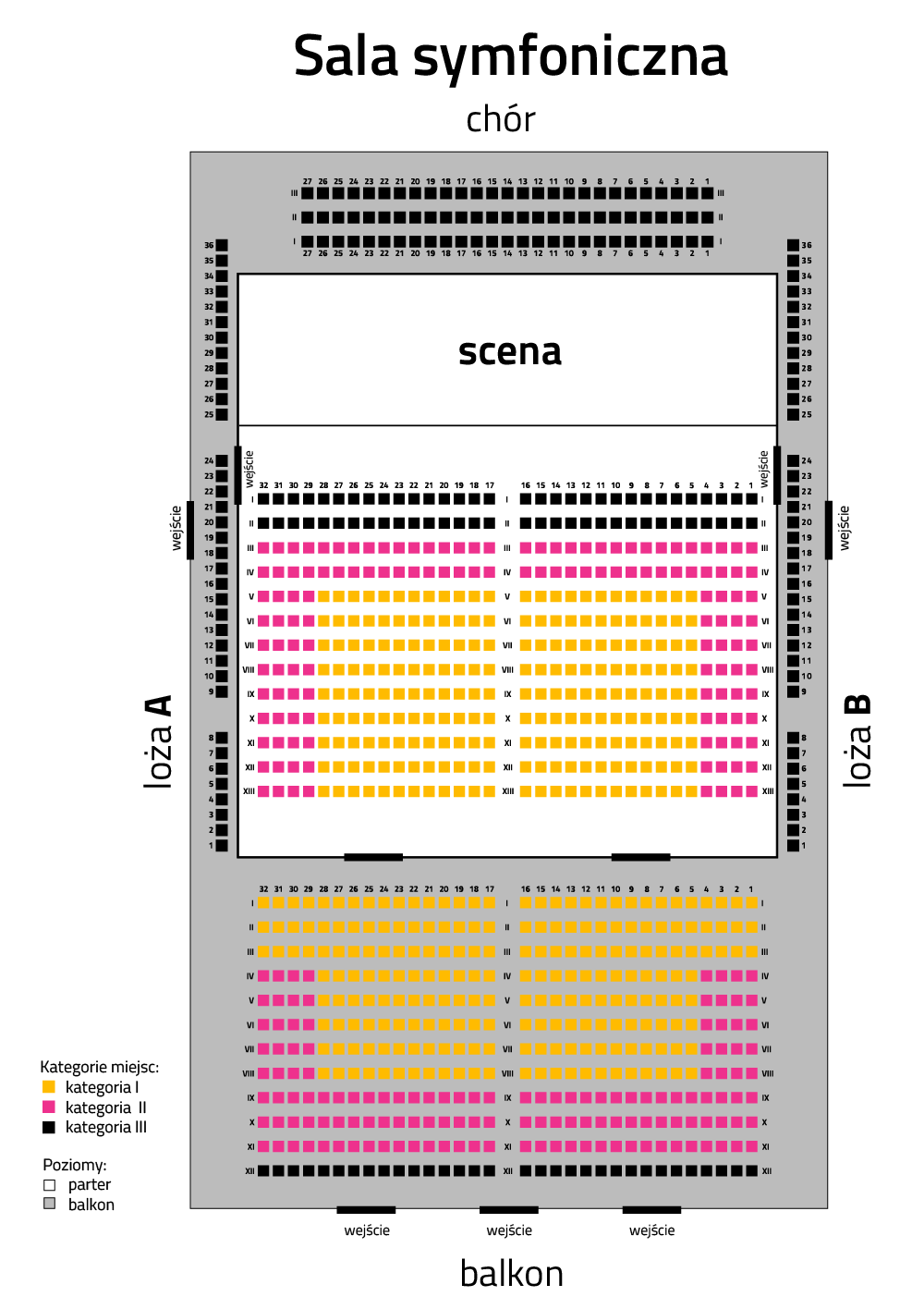An extraordinary meeting of the precursor of musical jokes Maciej Niesiołowski and Grupa MoCarta with the symphony orchestra in the background. Maestro Niesiołowski began his musical career with a cello (playing in the Wilanowski Quartet) to turn to the conductor's baton in 1974.
An extraordinary meeting of the precursor of musical jokes Maciej Niesiołowski and Grupa MoCarta with the symphony orchestra in the background. Maestro Niesiołowski began his musical career with a cello (playing in the Wilanowski Quartet) to turn to the conductor's baton in 1974.
He has conducted orchestras at the Warsaw Chamber Opera, Teatr Wielki in Warsaw, and also the Warsaw Academy of Music Orchestra. He was the artistic director of the Musical Theater in Łódź. His great popularity and the name of classical music joker was the result of a series of television programs "With baton and humor".
Grupa MoCarta is the combination of a professional string quartet and cabaret. They can save even the least funny and tiring review of cabaret groups. Fantastic musicians and an intelligent sense of humor – this mixture has won audience "from Mrągowo to Zakopane" for years. Artur Renion: "We are in opposition to the dignified reverence of concert halls, in opposition to the tedious everyday life of musicians, in opposition to the sworn musician and in opposition to rock, rap and pop music fans who rather stay away from classicals pieces.. We treat our Mother Music with jocular irony and we are sure she will not find offence."
------------------------------
Mikołaj Rykowski PhD
Musicologist and clarinetist, doctorate, and associate at the Department Music Theory at the Paderewski Academy of Music in Poznań. Author of a book and numerous articles devoted to the phenomenon of Harmoniemusik – the 18th-century practice of brass bands. Co-author of the scripts "Speaking concerts" and author of the spoken introductions to philharmonic concerts in Szczecin, Poznań, Bydgoszcz and Łódź.
Exhibition available during event:
VI Międzynarodowe Biennale Plakatu Społeczno-Politycznego“Dwanaście uniwersalnych wartości:
nadzieja, tolerancja, szacunek, wolność, przełamywanie barier, spotkanie, odpowiedzialność, sprawiedliwość, porozumienie, solidarność, dialog, równość, które określiły nasze działania, jako drogowskazy wpisuję się w idee Biennale i stanowią linię przewodnią i motywację dla naszych dalszych działań”. Za słowami
Leszka Szustera – dyrektora Międzynarodowego Domu Spotkań Młodzieży i
Pawła Warchoła – kuratora wystawy, podpisało się kilkuset artystów z 27 krajów, tworząc
594 plakatów. Dzieła te stanowią graficzny odzew na współczesną rzeczywistość.

